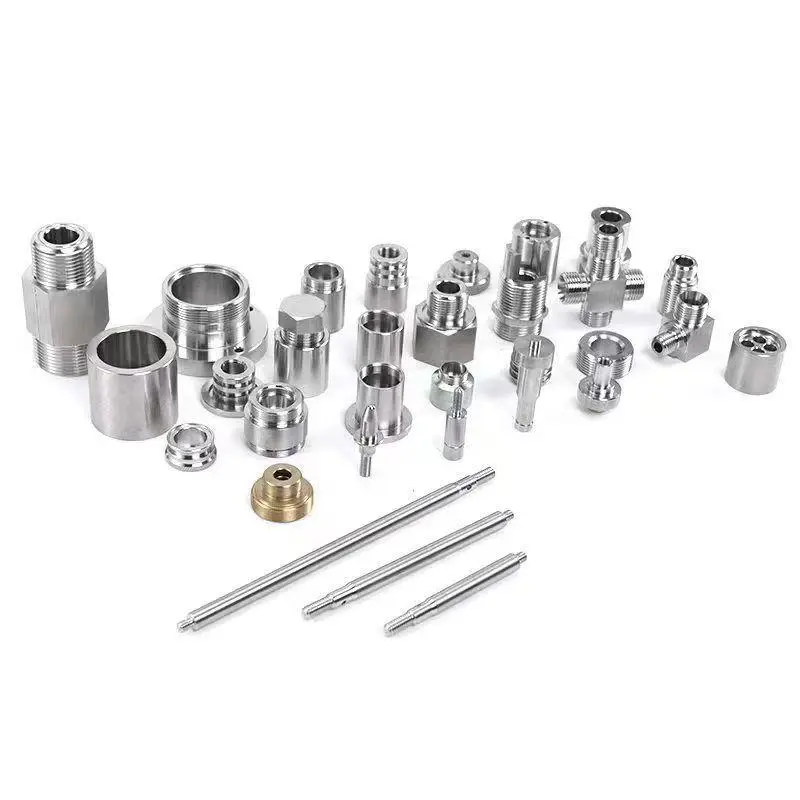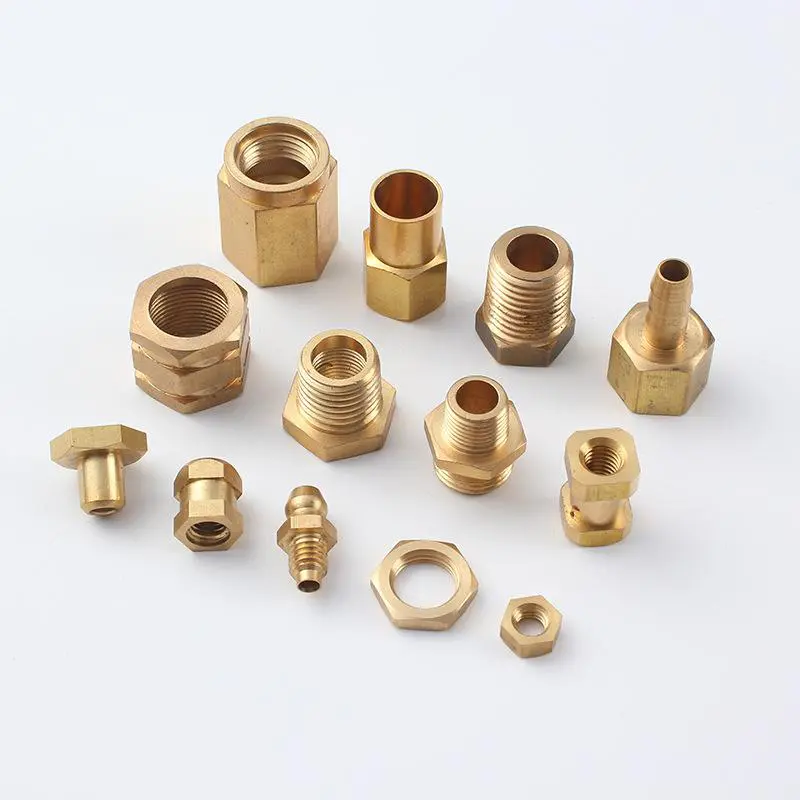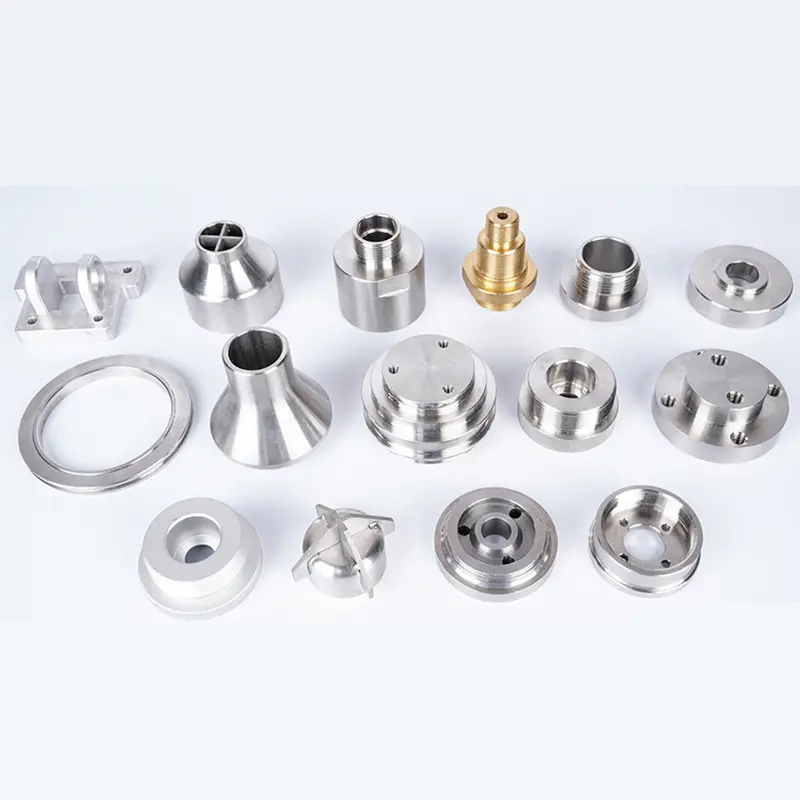The Essential Guide to Precision Parts in Manufacturing
Published Time:
2025-09-12
Precision parts are components that are manufactured to exact specifications, often with tolerances measured in microns. These parts are essential in various industries, including aerospace, automotive, electronics, and medical devices, where precision and reliability are non-negotiable. The manufacturing of precision parts involves advanced techniques and technologies to ensure that every component meets the rigorous demands of functionality and durability.
One of the most significant aspects of precision parts manufacturing is the use of Computer Numerical Control (CNC) machining. CNC machines enable manufacturers to create complex shapes and designs with high accuracy. The process involves programming the machine to follow precise specifications, which minimizes human error and maximizes consistency. This is particularly important in industries where even the slightest deviation can lead to failures, safety concerns, or costly recalls.
Materials used in the production of precision parts vary widely, and the choice of material often depends on the part's intended application. Common materials include metals like aluminum, steel, and titanium, as well as plastics and composites. Each material offers distinct advantages, such as weight, strength, and corrosion resistance, making it essential to select the appropriate material for specific applications.
Quality control is another critical factor in the manufacturing of precision parts. Various testing methods, such as dimensional inspections, surface finish evaluations, and functional testing, are employed to ensure that each part meets established standards. Manufacturers often adhere to international quality standards, such as ISO 9001, which helps in maintaining consistency and reliability in production.
Furthermore, the rise of additive manufacturing, commonly known as 3D printing, has introduced new possibilities for creating precision parts. This technology allows for rapid prototyping and the production of complex geometries that may be challenging to achieve with traditional machining methods. However, while additive manufacturing offers flexibility, it is crucial to evaluate its suitability for specific applications, especially where precision is paramount.
In conclusion, precision parts are integral to the success of modern manufacturing. Their role in ensuring the functionality and safety of end products cannot be overstated. By leveraging advanced machining technologies, selecting appropriate materials, and implementing stringent quality control measures, manufacturers can produce high-quality precision parts that meet the demands of various industries. Understanding these aspects can help businesses optimize their processes and enhance their competitive edge in the market.
Overall, a commitment to precision in manufacturing not only improves product quality but also fosters innovation and efficiency in production, ultimately benefiting the entire supply chain.
One of the most significant aspects of precision parts manufacturing is the use of Computer Numerical Control (CNC) machining. CNC machines enable manufacturers to create complex shapes and designs with high accuracy. The process involves programming the machine to follow precise specifications, which minimizes human error and maximizes consistency. This is particularly important in industries where even the slightest deviation can lead to failures, safety concerns, or costly recalls.
Materials used in the production of precision parts vary widely, and the choice of material often depends on the part's intended application. Common materials include metals like aluminum, steel, and titanium, as well as plastics and composites. Each material offers distinct advantages, such as weight, strength, and corrosion resistance, making it essential to select the appropriate material for specific applications.
Quality control is another critical factor in the manufacturing of precision parts. Various testing methods, such as dimensional inspections, surface finish evaluations, and functional testing, are employed to ensure that each part meets established standards. Manufacturers often adhere to international quality standards, such as ISO 9001, which helps in maintaining consistency and reliability in production.
Furthermore, the rise of additive manufacturing, commonly known as 3D printing, has introduced new possibilities for creating precision parts. This technology allows for rapid prototyping and the production of complex geometries that may be challenging to achieve with traditional machining methods. However, while additive manufacturing offers flexibility, it is crucial to evaluate its suitability for specific applications, especially where precision is paramount.
In conclusion, precision parts are integral to the success of modern manufacturing. Their role in ensuring the functionality and safety of end products cannot be overstated. By leveraging advanced machining technologies, selecting appropriate materials, and implementing stringent quality control measures, manufacturers can produce high-quality precision parts that meet the demands of various industries. Understanding these aspects can help businesses optimize their processes and enhance their competitive edge in the market.
Overall, a commitment to precision in manufacturing not only improves product quality but also fosters innovation and efficiency in production, ultimately benefiting the entire supply chain.
NewsCenter
Beijing Pafinal Precision Machinery Co., Ltd.
Email:sales@pafinal.com

Address: No. 239 Huanhe South Road, Tianjin Pilot Free Trade Zone (Airport Economic Zone), Tianjin
中企跨境-全域组件
制作前进入CSS配置样式
sales@pafinal.com:
Whatsapp:
在线客服添加返回顶部
图片alt标题设置: PAFINAL
表单验证提示文本: Content cannot be empty!
循环体没有内容时: Sorry,no matching items were found.
CSS / JS 文件放置地




 2025-09-12
2025-09-12


